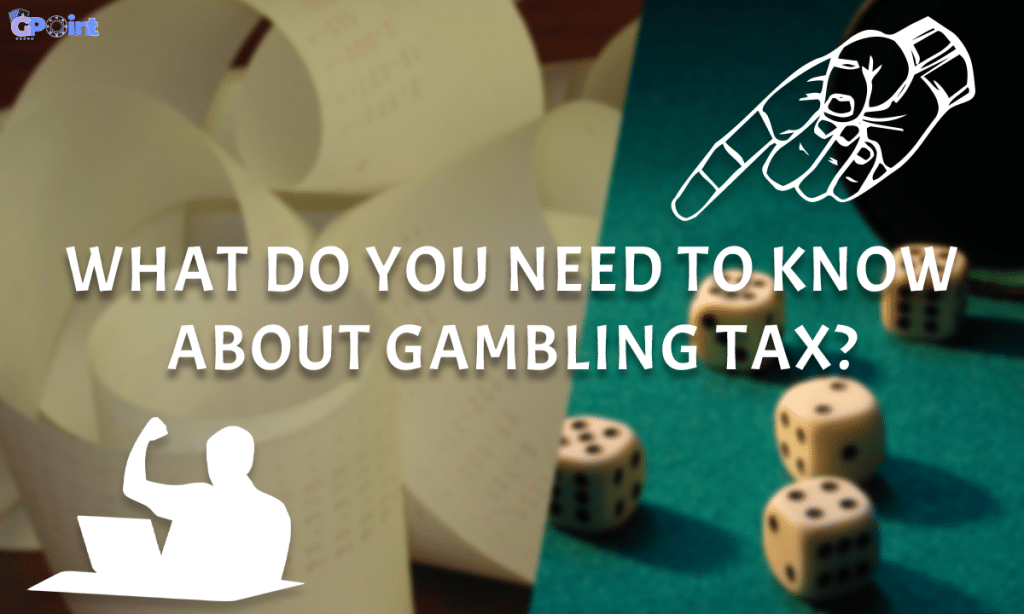Every year, about 60 percent of Britons place their bets and get their hopes up, but only a few lucky players take home the money without the tax. However, there is a catch. Even if you win big and feel rich, you can’t keep all the money. Here’s why!
In many countries, the money you get from virtual gambling and online betting is fully taxable, and Internal Revenue Service (IRS) always guarantees you pay. As a consolation, gambling losses are deductible when you document your deductions.

Non Taxed Casinos UK
▶ Disclaimer
We maintain an affiliate partnership with this casino. Our earnings are generated when players visit the casino's website, register an account, and make deposits. It's important to note that this arrangement does not impact the review or rating of the casino
🦺 Secure 🤨 Trusted ✅ Verified 🇬🇧 Accepted
Last Updated: 1 May 2025
Non Gamstop Sites
- Generous bonuses and promotions
- Wide variety of currencies and payment methods
- Broad range of games and software providers
Non UK Casinos
- Higher withdrawal limits
- Tailored VIP programs
- Operate under international licenses
Crypto Casinos
- Instant deposits and withdrawals
- Secure blockchain technology
- Access to new and unique games
Bookmakers not on gamstop
- Wide range of sports and markets
- Exclusive betting promotions
- Enhanced privacy for players
The important thing is that you have records to prove your profits and losses. Fortunately, things are different in the UK. There you can keep the entire winning amount, as gambling isn’t taxable in the UK! While gamblers in other countries, like USA, France, and Egypt, have to report their gambling winnings and pay tax ranges between 10% to 50%, Britons can keep their entire winnings and not report them.
So, before you go to non GamStop casinos for your next bet, make sure you are familiar with the tax laws related to gambling to avoid issues.
Table of contents
How the Gambling Tax Process Works?
Every country in the world has specific laws regarding gambling. For example, some countries legalize gambling, while others prohibit it completely.
Other countries do not allow or prohibit gambling. In countries that regulate gambling, such as the USA, there are legalized forms of gambling and other unregulated forms. Furthermore, not all countries allow specific payment methods to conduct deposits and withdrawals.
Another typical example of different gambling industries is operating costs. For example, in some countries, operators must pay casino taxes on their winnings, while both casinos and sports betting sites must pay taxes on their net profits.
In the USA, if you win a substantial amount of money – depending on the game – while playing on any legally operating casino, the payer will deduct 24 percent of your income from the total amount and provide a copy to the IRS.
The situation is entirely different in the UK, where players do not have to pay taxes on their winnings. Instead, casinos and sports betting shops pay taxes on their total winnings. The percentage that operators have to pay can be high or low, depending on the country.
It is not a tax haven for the UK, as the country imposes taxes of up to 50% on the gross profits of casinos, sports betting shops not on gamstop, bingo, and poker halls. Although this percentage is very high, some countries, such as France and Austria, have higher taxes.
Similar to the UK, Ireland does not tax gamblers in online casinos. Instead, gambling service providers are required to pay a certain percentage of their winnings in taxes. However, gambling service providers must only pay 1% of the total bets placed on their services during the year.
Is It Different for Professional Players?
Of course, you have heard of poker legends or sports bettors who make consistent profits betting on sports. In fact, they would be very lucky if they lived in the UK or Ireland as they did not have to pay any taxes on their winnings. However, it differs greatly in the United States, France, and Germany.
In these countries, income earned from gambling activities counts as regular income, like salary or property rent. Therefore, these winnings are subject to taxes ranging from 10% to 50% of the total profits earned by the player. However, a player can be exempt from paying taxes if he is not a resident of the United States of America.
Why Does the UKGC Not Tax Players?
The simple answer is that the UK and Ireland do not want to discourage the gambling industry and know that the house always wins.
So, taxing gamblers’ profits would have a detrimental effect rather than the other way around.
If a player gets a prize of £1 million in a lottery, the company operating the lottery certainly gets many times that value. So, it makes no sense to underestimate the actual value of the prize that the player gets. Furthermore, all gamblers, even the most profitable, lose a lot in gambling, meaning that taxes must subtract net losses from net winnings to arrive at the true taxable profit.
History of Gambling Laws
The UK legalized gambling in the year 1960. At that time, a tax of 9% was imposed on gamblers, not gambling providers. This law remained in place until March 2001.
At the turn of the century, this tax was replaced by a tax of 15% per annum. However, if the casino doesn’t have a headquarter in the UK, it doesn’t have to pay any taxes to the UKGC. Therefore, a large number of gambling service providers have moved their operations outside the UK, where they can benefit from better tax treatment. For example, in Gibraltar, gambling providers can only pay 1% tax!
Who Exactly Pays the Gambling Tax?
Under British law, casinos and bookmakers must pay taxes on their winnings. This is how they contribute to the UK economy. According to the UKGC, gambling service providers are divided into five categories as follows:
- Gambling service providers
- Bingo networks
- Slots providers
- Lottery service providers
- Remote betting service providers
- Mortgage app
- MOSES
Before you start thinking about how hard the gambling business is, keep in mind that they pass these taxes on to you in some way.
For example, some non GamStop casinos require higher withdrawal limits. Other casinos impose higher wagering requirements, offer lower odds, or host games with a higher house edge.































